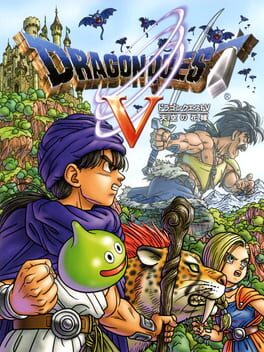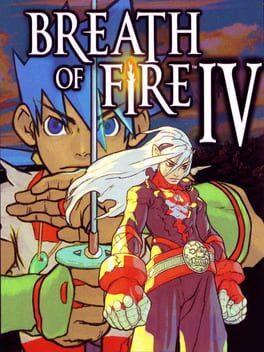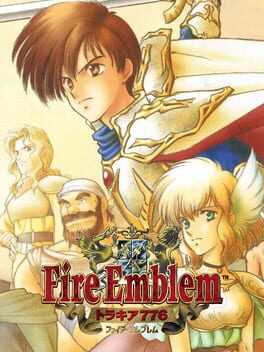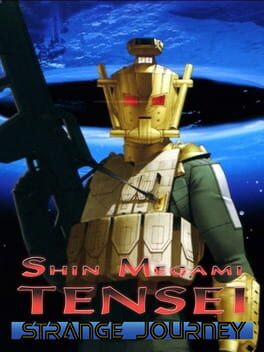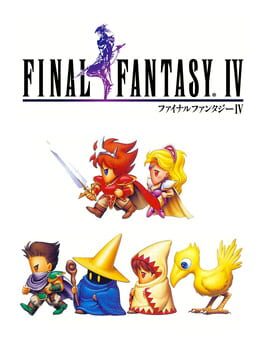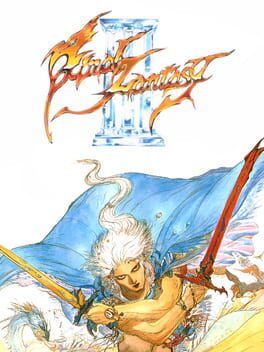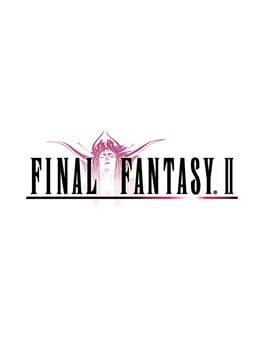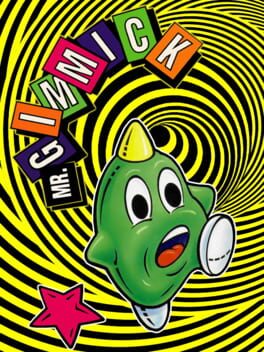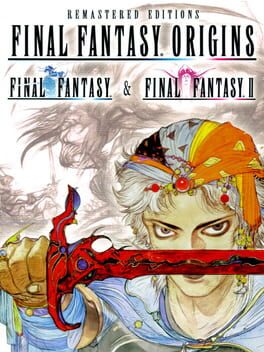qlip
nb raging autist, ""bad"" game connoisseur and defender
Badges

Pinged
Mentioned by another user

Roadtrip
Voted for at least 3 features on the roadmap

Shreked
Found the secret ogre page

Replay '14
Participated in the 2014 Replay Event

Treasured
Gained 750+ total review likes

Listed
Created 10+ public lists

GOTY '23
Participated in the 2023 Game of the Year Event

Trend Setter
Gained 50+ followers

Adored
Gained 300+ total review likes

Donor
Liked 50+ reviews / lists

Gamer
Played 250+ games

Loved
Gained 100+ total review likes

2 Years of Service
Being part of the Backloggd community for 2 years

Popular
Gained 15+ followers

Best Friends
Become mutual friends with at least 3 others

GOTY '22
Participated in the 2022 Game of the Year Event

Well Written
Gained 10+ likes on a single review

Gone Gold
Received 5+ likes on a review while featured on the front page

Liked
Gained 10+ total review likes

N00b
Played 100+ games

Noticed
Gained 3+ followers
Favorite Games
426
Total Games Played
038
Played in 2024
1672
Games Backloggd
Recently Played See More
Recently Reviewed See More
edward might just be one of the misunderstood characters in the genre because people say he's useless and leave it at that but that's kind of the whole point!!!! he's ill suited for battle and runs away when his hp gets low but it's actually a fantastic example of gameplay-narrative integration because when you find him bed-ridden later in the game he's ironically a far more capable, foward thinking person and that forward thinking saves the party. and then there's cecil becoming a paladin which to me perfectly encapsulates how sakaguchi sought to use the interactivity of video games as a medium to enhance story-telling; contextualising overcoming his dark side with a battle that you win by simply not attacking - by ceasing the violence and accepting that dark side as a part of him is so unbelievably cool that it makes up for maybe... three of the fake out character deaths? lol
that's not even touching on the level of pantomime exhibited by the dinky little character sprites. i'd argue ff4 looks worse overall than 3 despite the stronger hardware but it's clear that the snes' extra power was still leveraged by just how much more animation these overworld sprites have, even if squaresoft's other games made far more use of it. they jump around and make big exaggerated movements and it's really cute - it's a big part of this game's appeal to me.
there's also the question of the atb battle system and tbh I've seen a lot of contrarianism levied towards it lately and how "it was never good" but honestly that's their loss because going through this game on the highest speed and active settings makes most boss fights nail-biters and I adore how fast everything is - very few rpgs demand this kind of quick thinking and decision making. I also sorta kinda get why the US release was based on easy-type now that I've actually experienced the original japanese difficulty (via the namingway patch if you're curious which is an excellent translation and the script reads so well that it's part of why I'm able to shrug off a lot of the game's poor writing choices). I commonly see how the ds version is "the most difficult version" but I think it's really just based on this version's difficulty, which naturally very few english speakers have experienced lmao
a big area of contention is the near total lack of party customisation and...I get it. it's a big step back over the previous games (offset by how much of a step forward it is for just about everything else) but I mean you can just play the gba or ds versions since they rectify this in their own ways. i dont even need to talk about the music much either because there's not much more to say than uematsu knocked this one out of the park and the snes renditions of this game's music remain the best. huge shoutouts to the wonderswan colour version's soundtrack though because the strength of these compositions still shines on weaker sound hardware.
I do need to bring to attention just how big of an epilepsy hazard this game gets at times. Old games obviously had lots of flashing lights and colours to emphasise some kind of shock or impact but this (//EPILEPSY WARNING) is outright fucking disgusting they WANTED to cause seizures with this. It doesn't bother me too much because I don't have epilepsy but this was especially inconsiderate of the devs even for the time.
best way i can describe this game is like eating lucky charms. im ripping off projared's conclusion on sa2 but this game really is a big example of the little things making up for its issues even if those only real issues are the story lol
My very first encounter in the crystal tower was an ambush that resulted in a party wipe before I could act.
Final Fantasy III's final dungeons aren't that bad actually and don't even need the 2 sages 2 ninjas setup to beat as long as you can RPG good enough.
Final Fantasy II marked the first time he would assume the directorial role for the series, and he would remain as the series' director until FF6. It's a position that made for a signiticant departure from the game that preceded it and cemented the direction the series would take going forward, establishing his name as one synonymous with the series and the genre he helped pioneer.
Being frank, the first Final Fantasy, to me, was a mere stepping stone in the development of the genre. While it was a commercial and critical success, helping towards popularising the genre, it was eclipsed in terms of scope, impact and quality by the release of Dragon Quest III a mere two months later. To this end, Sakaguchi and his team knew they needed to innovate in order for their sequel to stand out.
The end product was one of the most historically significant and interesting video games I've had the pleasure of experiencing.
As soon as you start a new game, FF2 throws you into a fight that you cannot win - a scripted battle sequence showcasing the oppression and tyranny enacted by the empire. There's no sugarcoating it; this is a genocidal regime bent on power and conquest. This oppression remains prevalent and clear for the majority of the game's runtime, with frequently visited cities taking visible damage and the disappearance of npcs being attributed to naught else but by simply getting killed by the empire in its pursuit of power. It's nothing short of remarkable for a game of this time to have such a strong ludonarrative, even if it's not perfect.
One thing that set FF2 above the rest was the implementation of distinct, recurring, plot relevant characters. Symbolic of how ahead of its time it is, however, a lot of information on them can only really be gleaned from supplementary material like the later novelization that the game would recieve, or Yoshitaka Amano's beautiful artwork. Hell, some of it can just be inferred by reading between the lines. There's a beauty to this, though; looking for these things puts you in the same state of mind most people would have playing it on release, and it becomes easier to notice and appreciate the intentional flourishes the team behind everything made to facilitate players filling in the gaps.
My favourite example of this by far is Guy. If you follow my twitter (sorry), you'll probably find that I joke about the infamous "Guy speak beaver" line a fair bit. I mean. Yeah, it's weird, funny and silly out of context, and I love it for that, but it's...really good in context as well? Look at Amano's official art for him - he's a hairy, hulking mass of a man with a totally dumbfounded look on his face, and there's plenty ingame material that reflects this art in some way, like his speech impediment and affinity for animals - he's a gentle giant. This is an actual character, and I was able to infer their characteristics and personality by following the breadcrumbs that the devs left behind. It's not much, but the fact I can do this at all for a 1988 famicom rpg is impressive. I'm also a really big fan of the cast of rotating fourth slot party members - they get more development and background than even the main trio, and that's even further built upon in Soul of Rebirth in the gba and psp releases.
Discussing the other members of the dev team and their impact, one would be remiss to not talk about Nobuo Uematsu - a man just as important in the realm of jrpgs as Sakaguchi. Most Final Fantasy games simply wouldn't be Final Fantasy without his work. Through his music, much life and emotion has been injected into the series' locations, characters and cutscenes, but FF2 is where that trend began.
Most of FF1's music was generalised; you had your town, overworld and dungeon tracks that would play whenever you were in them. Conversely, FF2 not only opens with an aforementioned scripted, unwinnable battle, but is followed with a cutscene featuring two music tracks that only play in that cutscene and nowhere else. Uematsu really started to blossom as a composer here, and stuff like the Battle 2 shows glimmers of the bigger, grander compositions he would concoct with later entries in the series as well.
The overworld music is somber, and it's a tune that persists regardless of method of transport. Its melody repeatedly rises and falls in intonation, giving a sense of the desolation, futility and persistence that Firion's party faces when crossing the hills and waters between towns. Another personal favourite of mine from this game is the Mysidia tower - there's just such sunch a sense of mystery and the unknown to it - fitting for a structure untouched by civilization for centuries and built to house the forbidden magic: Ultima.
Music and story are never the subject of discussion surrounding FF2 though. Instead, FF2 is often maligned for its gameplay systems, and I'd argue wrongly so. If you ever ask anyone whose played ff2 for advice, they'll likely tell you to unequip everything and grind by hitting yourself outside the starting town. This isn't even the optimal way to grind early on, and you'll be frequently killing your own party members and needing to revive them - it's just a hassle and does the game's incredibly modular and innovative levelling system a disservice. That's not even touching on the complaints levied towards the key-word system, which quite frankly just feels like a case of people not paying attention to dialog or being unable to intuit the phrase required to progress the plot or that they should just cycle through all of the ones at their disposal. It actually works really well for the game's worldbuilding - just providing the "Wild rose" key phrase to npcs in Altair has them informing you on the war situation and reliquinshing background info on characters not found elsewhere. It's also an interesting example of taking further influence from the CRPGs that inspired Final Fantasy's creation that other RPGs neglected. All of FF2's systems were fashioned by Akitoshi Kawazu in a bid to further the possibilities for interactivity that video games possessed, and while they were dropped with the next mainline release, they live on in the SaGa series, which he went on to create and is still directing.
Far less known than Uematsu, Amano, or Sakaguchi, or even Kawazu, and often unsung when chronicling development of Final Fantasy's early years, is one Nasir Geballi. If you've played any version of the early FF's, there's a good chance you've seen "Programmed by Nasir" at some point. He was, in fact, the main programmer behind the original releases of these games and the leap in terms of just how much stuff actually works as intended from the previous title is nothing short of impressive, unquantifiably so due to just how much more modular gameplay in ff2 is. It's kind of infuriating seeing ff2 repeatedly described as being broken or too exploitable, all the while ff1 was held together by glue and duct-tape. Funnily enough, one of the few instances where things don't work as intended lies in the Ultima spell. It's supposed to scale based off of the combined skill level of every weapon and spell type the user has, but it doesn't scale nearly as much as intended. Even so, this arguably works better for gameplay-story integration - it's oddly fitting to have the spell sought after as the empire's bane end up being practically useless, especially in light of the sacrifice given to access it.
Final Fantasy II is a tragic tale, both in terms of its narrative and its perception as a video game years later. Something so ahead of its time, spearheaded by a dev team fueled by the desire to innovate, only looked back on today with contempt perpetuated by false narratives surrounding its gameplay.
